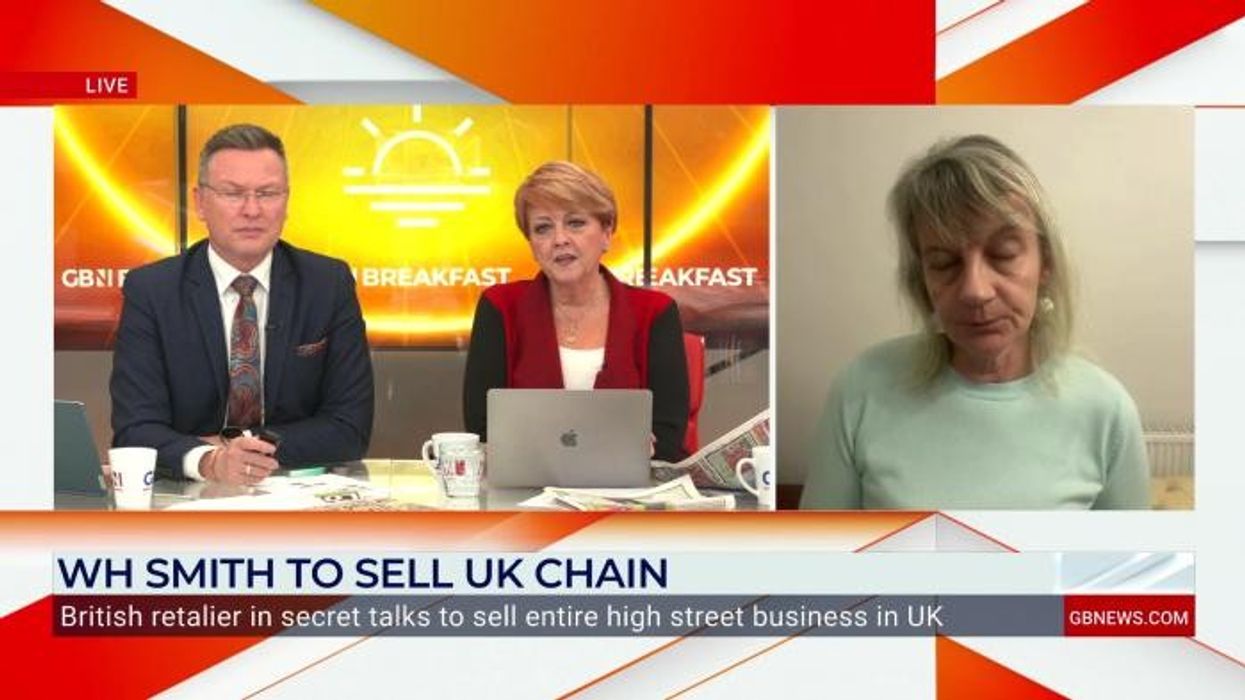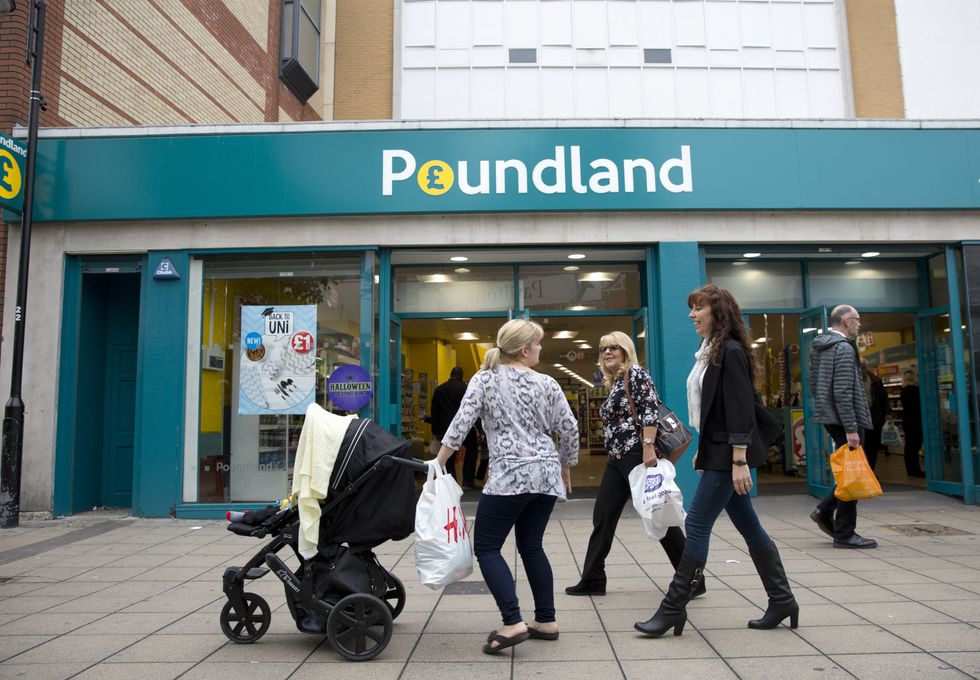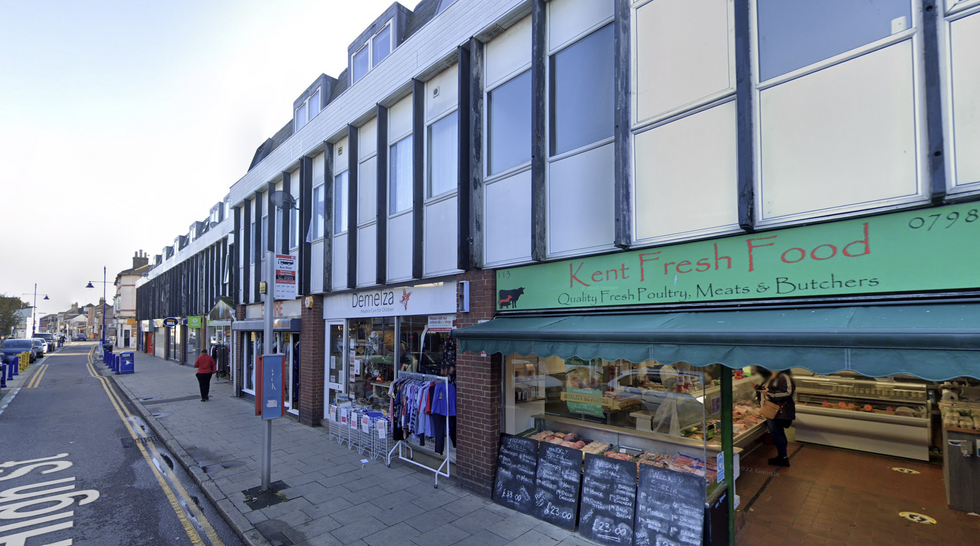'Sad state of the high street': Poundland store closures deal fresh blow as 'cheap' no longer works in 'flatlining Britain'

Helen Dewdney discusses the death of the high street as it's revealed WHSmith is in talks to sell up |
GBNEWS

The discount chain is cutting fixed costs as it struggles to stay competitive in an increasingly tough retail environment
Don't Miss
Most Read
Poundland will close 68 stores across Britain after being sold for just £1 last week, marking another significant blow to the struggling high street.
The discount retailer plans to reduce its estate from approximately 800 stores to around 650 locations.
Rachel Winter, partner and investment manager at Kilik and Co, told Radio 4 this morning: "The state of the high street is a sad situation. Poundland was sold for just £1 last week because the business was really struggling."
The closures will result in thousands of job losses as the new owners focus on cutting unprofitable locations as part of the restructuring plan.
The store closures highlight a surprising economic paradox affecting discount retailers. Ross Clark, writer and columnist for The Spectator, noted: "Why do discount stores seem to suffer more in bad economic times than they do in good times? Shouldn't recessions, or times of anaemic growth as we have now, be good for shops that sell things cheaply?
"Surely they attract customers who are forced to trade down. On that basis, the tills at Poundland ought to be ringing in Rachel Reeves’s flatlining Britain."
Clark explained that Poundland's former CEO Jim McCarthy once observed the business was actually "more profitable during boom times."
The current economic climate has created what experts describe as a perfect storm for the discount sector.
Rising operational costs have placed enormous pressure on Poundland's already thin margins.
Rajeev Shaunak, Head of Consumer at MHA told GB News: "Inflation remains high with the cost of some basics soaring, the increase in national insurance is starting to bite, and this particularly impacts those employing lower paid staff due to the reduced threshold. This increases costs for Poundland disproportionally.
"The above factors particularly impact low margin businesses like Poundland who cannot significantly raise prices as their customer base cannot absorb it."

Poundland to shut 68 stores in fresh blow to high street
| GETTYClark highlighted a fundamental flaw in Poundland's business model, explaining that inflation has steadily eroded the chain's purchasing power. A pound in 1990, when the company was founded, now holds the purchasing power of just 40 pence.
Labour costs have also surged dramatically. Since the introduction of the national minimum wage in 1999, it has more than tripled, creating what Clark described as "a major pressure point for labour-intensive retailers."
The discount retailer also faces intense competition from multiple fronts.
Susannah Streeter, head of money and markets at Hargreaves Lansdown, explained to GB News: "Both Lidl and Aldi have extensive, rotating home ranges, and Sainsbury and Tesco are also hot competition.
"Temu and Shein are becoming formidable competitors flogging cheap homewares, toys and presents with a huge social media presence."
 In stores, Poundland plans to improve its clothing range by adding more women’s fashion | GETTY IMAGES
In stores, Poundland plans to improve its clothing range by adding more women’s fashion | GETTY IMAGESShuanak explained that with pressure mounting on Poundland’s already thin profit margins, the retailer is working to cut its substantial fixed costs, particularly rent which is main reason for the need to close down many stores.
He said, unlike Lidl and Aldi, which have attracted middle-class shoppers trading down, Poundland lacks a comparable one-stop-shop appeal. And with tougher trading conditions expected in the second half of the year, the chain faces a challenging path to recovery.
"With the latter half of the year likely to be tougher for retailers, Poundland find themselves in a difficult position to get themselves out of," he added.
Changing work patterns have also damaged footfall. "With hybrid working sucking people out of towns and cities centres mid-week, there are fewer people to pop into buy little extras," she noted.
The new owners are expected to concentrate on high-footfall locations such as retail parks and central areas, whilst focusing on competitive offerings like meal deals.
Streeter added: "Poundland still has pulling power among customers shopping on tight budgets, so is set to remain a presence on the retail landscape but seems inevitable that its UK store estate will shrink markedly."
The founder of Poundland has said he tried to buy the firm back when he heard it was up for sale.
Steve Smith's business venture began on a market stall in Bilston where he sold items for £1, with the first Poundland store opening in Burton-upon-Trent in 1990 and Smith selling his shares in the firm for £250m in 2006.

The chain "faces a challenging path to recovery."
| Google MapsThe business, which currently has 792 stores in the UK and Ireland and employs about 16,000 people, was sold last week to US investment firm Gordon Brothers.
Smith admitted he was sad but not entirely surprised at the news of the business needing to restructure.
He said: "I do think it was inevitable, this was going to happen because I experienced it on the market stall with our prices going from 10p to 20p and so on. Customers are used to the £1 concept but as the price point changes so do our prices."
He said while he understood the need for price increases more would have been needed to help support the business, in his opinion.
"It's still a one prince concept, that's what customers loved and what made Poundland different," he said, "but I would've changed the price point and I think it does need new systems [and] it's important the business get support from their suppliers."
More From GB News










